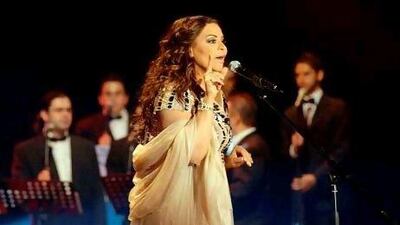Despite the rapid economic growth of the Gulf, its indigenous music remained largely intact while gathering a bigger audience. In the fourth of our eight-part series on Music of the Arab World, Saeed Saeed takes a look at music from the Gulf region, known as Khaleeji music, and its growth from Bedouin beginnings to its current pop status.
The origins
Before the modern pop sheen of today's Khaleeji tunes, its history had it play a bigger role than simply entertainment. More than 50 years ago, before the borders of the GCC were established, the songs were vessels transmitting stories of Bedouin communities living in the desert and their fishing counterparts residing on the coast. Music, poetry and dance intermingled to portray stories from different communities. The eclecticism of those early sounds - with some encompassing influences from East Africa, Iran and India - indicate the region was a melting pot well before the skyscrapers and lavish hotels.
The poetry
There is a reason why the UAE and the wider Gulf celebrates poetry: it forms the DNA of the region's music. A Bedouin tradition or tribe is highlighted by its shaa'ir, which means poet, whose literary prowess earned him a leadership role within the community. Early Khaleeji music had poets reciting their works - which often dealt with the tales of camel riders, odes to warriors and love songs - accompanied by a rebab or rababa, an eighth-century stringed instrument defined by a tone similar to the human voice. Despite technological advances, some poetry continues to be passed down the generations orally, with new generations adding their bits of improvisation.
Music and dance
Khaleeji music has many variations linking to specific regions and countries. One of the most renowned forms are pearling songs. Practised along the coasts of the UAE, Bahrain, Qatar and Oman, the songs were vocal tributes to the joys and hardships of sea life. The song structure is linked to the manner of performance. Those sung during the loading and unloading of sea cargo were often gruffer and made of short, intense bursts, while the entertainment variation were often longer and rhythms more languid. Qatar has its own range of local dances such as the Ardah. Traditionally performed on Friday afternoons, the Ardah has two rows of male dancers accompanied by a stream of percussion including drums, tambourines and cymbals as well as the spoken word. In Oman, the drummer-led Lewa dance, performed mostly during Eid celebrations, is traditionally performed by descendants of African slaves and is sung in Swahili. Sawt - meaning voice - is the most urban form of Gulf music and is akin to the blues. Accompanied by the oud, the genre incorporates Arab classical music with traditional poetry; songs are often book-ended with spoken word verses. Its associated dance, the Zaffan, is performed by two males and consists of kneeling and leaping motions. Sawt music is often performed at evening male-only gatherings. Leading artists include Kuwait's Shadi Al Khaleej (known as The Bird Song of The Gulf) and Bahrain's Sultan Hamed.
The Mutribah
Traditional Khaleeji music is not a male-dominated arena. Women had their own musical practices that similarly incorporate song and dance. Before the 1950s in what is now Qatar, a dance called the Moradah was popular, where women would go to the desert to perform without being seen by men. Dressed in their finest, the women would sing of societal issues including love, marriage and war. Today, female singers can be found performing in private parties and weddings. Normally performing as part of a group, the band is led by the Mutribah, normally the most gifted singer, while the others chime in with backing vocals and instrumentation.
The stars
The biggest name in Khaleeji music is the UAE's Hussain El Jasmi, since his 2001 breakout single Bawada'ak. The Khor Fakkan singer's albums have been big sellers, with a fan base stretching across the Arab world. His local concerts attract thousands of Emiratis, with multitudes of Gulf fans flying in to attend. Dubai's Ahlam is one of the Gulf's first pop stars. As well as releasing 10 albums and headlining Middle Eastern music festivals, she was also a judge on the MBC talent show Arab Idol. Saudi Arabia's Tariq Abdulhakeem is also a major player courtesy of his services as hit-songwriter for Gulf stars as well as an accomplished solo performer.
Next week, we will examine Islamic music


